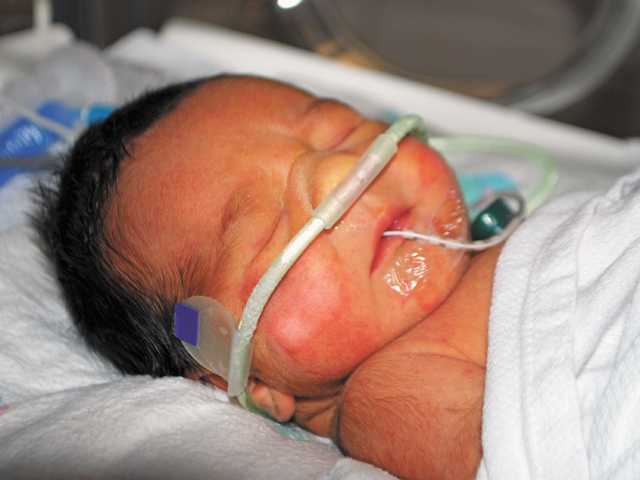The stewardship of people's financial gifts is a serious responsibility. Following some careful thought, prayer and wise advice, I came to the conclusion that when spending the available funds, I should strike a balance between meeting the immediate needs of Haitian babies and investing in their long term care.
During International Breastfeeding Week, I undertook some continuing professional development that helped forge a a plan to allocate my church's money in the most impactful way: I was reminded that there is a two week window period, following the birth of a baby, in which breastmilk supply is established. If the infant is born too small or too weak to suckle at the breast, the supply must be stimulated in other ways. The best way of achieving this is through a combination of mechanical expression with a hospital grade breast pump, followed by hand expression. Research demonstrates that regardless of the size or gestational age of a newborn, the long-term success of breast feeding depends on achieving an optimal level of production by the 14th day of the baby's life. Mechanical pumping and hand expression induce the milk let-down reflex and empty the breasts completely. This effectively stimulates the supply and can result in the production of 750-1000ml of breast milk by the end of the critical 14 day period.
Additionally, hospital grade breast pumps are the only pumps that can safely be used by multiple mothers and they are the most durable pumps on the market. Armed with the facts, I made my decision - a second hand hospital grade pump and some spare milk collecting systems were purchased for the orphanage I worked at. With the help of the Vanderewell family, the system was hand delivered to the orphanage by a volunteer. A visiting nurse has since confirmed that the pump is already in use and the the mother who is currently using it is producing volumes of breastmilk that greatly exceed her own baby's requirements. She and many other mothers, will now be able to produce as much milk as their babies need, for as long as they need it. This will have a significant impact on the survival rates of babies, after they leave the nursery, since premature babies in Haiti are discharged into environments in which formula milk is not a safe or viable alternative to breastfeeding.
The breast pump would be difficult to top, in terms of meeting babies immediate needs and investing in their future health and development. The idea that followed, though, also met these criteria. I learnt about a new CPAP cannula. Neonatal colleagues in the USA had introduced it into their units. They told me that the cannula made CPAP easier to manage. I did some research and learnt that the RAM cannula looked liked an ordinary oxygen cannula and could be applied without pinning and strapping it to a hat or fixing it to the baby's face with harsh adhesive tapes. As a result, skin breakdown and nasal septum damage (common risks with existing systems) were virtually eliminated. Was it as safe and effective as the prongs I had previously been using, though, and would it work with the equipment I'd had in Haiti? Yes, I was told. Additionally, the new cannula was preferred by many parents and nurses because the babies looked more normal without bulky CPAP tubing in front of their faces and because it was easier to place babies on their parents chest for Kangaroo care, when the RAM cannula was used, instead of a traditional CPAP prongs.
I wrote to a company, requesting product samples. I was sure that the availability of these cannulas would increase the likelihood that the CPAP programme I started in Haiti would continue without me. I was recently given several boxes of the cannulas, entirely free of charge, by the company that manufactures them. As a result, I have decided to share the cannulas among NGO's that provide nasal CPAP to sick and prematurely born babies in Haiti. Real Hope for Haiti and the Haiti Hospital Appeal are among the charities that will benefit. They are thankful that the generosity of a Scottish church and a California-based medical supply company have paid forward to them.
Since the Ram cannula's were donated, funds that had been allocated to meet the health and childcare needs of Haitian babies still had to be spent, in full. It did not take long to find a good use for they money that had been raised: an individual donor had given me a cheque, which she asked me to spend at my discretion. One afternoon, I read a facebook post, written by missionary friends who worked at Real Hope for Haiti in Cazale. Two children had attended their rural clinic in desperate need of specialised surgery and an appeal had been launched to ensure that these children received the care that they so desperately needed. Both children were successfully treated. A seed sown faithfully by a donor from my own church helped to make this possible, covering 10% of the the children's initial medical fees. Below are remarkable photographs of one of the children, before and after her treatment.
 |
| Renia arrived in at Real Hope For Haiti with a severe neck swelling that was beginning to obstruct her breathing. |






